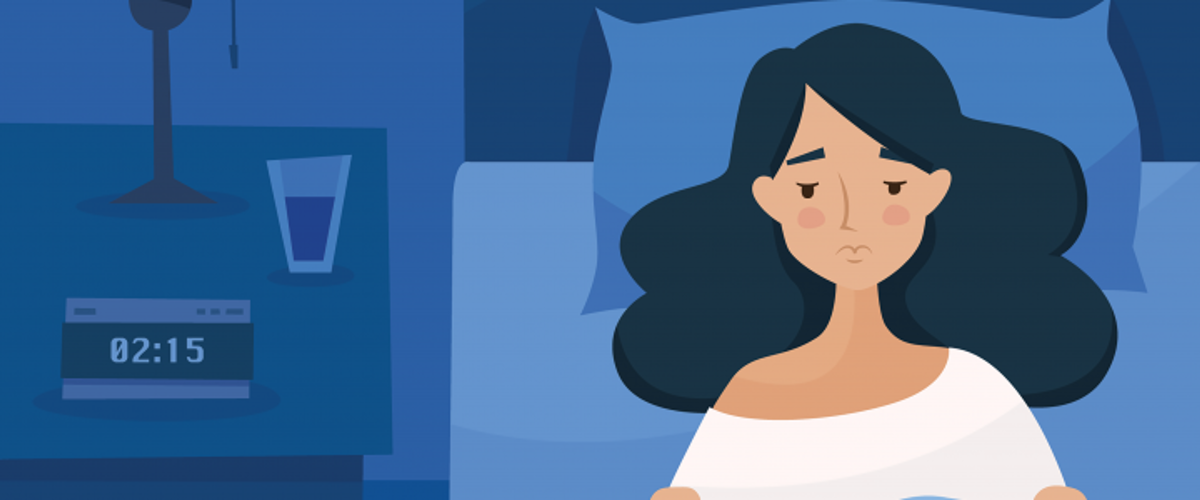Insomnia: When Sleep Becomes A Luxury
3 Minutes Read
Have you ever experienced insomnia? Insomnia, defined by Mayo Clinic, is "a
common sleep disorder that can make it hard to fall asleep, hard to stay asleep, or
cause you to wake up too early and not be able to get back to sleep." As many as 50%
to 60% of the population is affected by this sleep disorder. Studies have shown that
insomnia leads to depression, decreased work performance, traffic and work related
accidents and generally poor quality of life.
Insomnia can be acute or chronic. Acute insomnia is whereby you suddenly find
yourself unable to fall asleep - this can be due to increased stress or post trauma.
Such episodes last from days to weeks. Chronic insomnia can last for a month and
beyond. There are numerous causes for this sleep disorder, including medications and
other coexisting medical conditions.
How Much Sleep Should I Get?
The recommended duration for a good night’s sleep is 7 to 8 hours each day. A study conducted in 2018 by the American Heart Association showed that participants who slept less than the recommended hours had increased risk of mortality and cardiovascular conditions.

What Are the Symptoms of Insomnia?
- Hard to fall asleep at night
- Constantly waking up at night
- Unable to fall back to sleep after waking up
- Daytime lethargy
- Feeling unrefreshed/fatigued in the morning
- Poor concentration on tasks

How to Manage Insomnia
You can prevent insomnia with these simple home interventions:
- Comfortable pillow and mattress: Old pillows and mattress provide insufficient support for the neck and back. You wake up with body aches and poor sleep. Hence, it is important that your sleeping area is as comfortable as possible.
- Dark, quiet and cool room: When the room is too warm, noisy and brightly lit, it makes sleeping unconducive. Eye masks, ear plugs, blackout curtains, fan or air conditioning are some solutions to facilitate sleep.
- Avoid afternoon naps: Your mind becomes less tired at night when you take long afternoon naps. This habit may result in insomnia. Instead, take power naps that last 10 to 20 minutes, ideally before 3pm.
- Avoid looking at bright screens at least two hours before bed: A study done by Harvard in 2020 demonstrated how blue light affected sleep. Blue light is most harmful at night - it suppresses melatonin production, which is essential for sleep. Instead of using your electronic devices prior to bedtime, read a book or listen to soft music to aid with sleep.
- Cultivate a regular sleep pattern: Try to go to bed and wake up at the same time every day. This pattern supports the body’s biological clock and helps promote a regular sleep pattern.
- Foods to avoid or limit before sleep - large amounts of water, alcohol and caffeine, heavy spicy meals: Drinking too much of fluids before bedtime will cause you to make frequent toilet trips, disrupting sleep. High consumption of alcohol disrupts sleep, more so during the second half of the night. A study done in 2013 by the Journal of Clinical Sleep Medicine recommended refraining from consuming caffeine at least 6 hours before bedtime. As caffeine is a stimulus, it has a significant disruption on sleep. Eating heavy and spicy meals before sleep causes heartburn and gastric reflux, which makes sleep uncomfortable.
- Consider a melatonin supplement to ease insomnia: A review published in 2017 showed that melatonin helped adjust the circadian rhythm, enhanced the onset, period and quality of sleep. Melatonin has lesser side effects whilst offering therapeutic response for insomnia. Melatonin however, is contraindicated in certain medical conditions. Approach your physician first before planning to start on any supplements.
If you still face insomnia despite the above-mentioned measures, schedule an appointment to see a healthcare provider. It is imperative to seek medical help when sleep is interfering with normal daily functioning.

